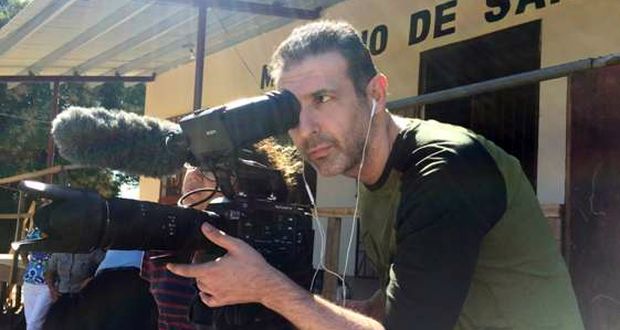My Home; Israel through the eyes of Arab-Israelis
My Home; Israel through the eyes of Arab-Israelis who would never live anywhere else
From CIJ News
For the first time, in the documentary My Home, we see life in Israel through those rarely heard from -the Israeli- Arab citizens who would never live anywhere else.
Twenty percent of the population are either Druze, Arab- Christian, Bedouin or Muslim. The media has focused on the Arab violence, their leaders that incite hatred, the rock-throwing mobs, inferring that all Arabs are hostile to the State of Israel. Now we hear from a cross section of people, that despite the problematic complexities of living in that country, embrace co-existence with their compatriots and are intensely loyal to the democratic state of Israel.
Wafa Hussein, a mother and teacher, when asked in the film is she is a Zionist, smiles and answers, “I am very much a Zionist”. She lives in the Arab village of Deir Hanna and teaches in an elementary school in Safed.
Mohammed Ka’abiya is a Bedouin who served in the IDF and prepares the youth in his village for service in the army. “There are Arabs here who are for the State,” he declares, in spite of constant, often humiliating security checks. And – “there are Arabs that call me a traitor.”
Father Gabriel Naddaf is a Christian Arab priest who claims Christianity is being erased in the Middle East. “In Arab schools, only Islam is taught.” He encourages Christian-Arab youth to “become full citizens and join the IDF”.
Jonathan is a young man in his twenties. Born in Lebanon, he and his family fearing Hezbollah aggression, sought refuge in Israel and found it. “You have to stop trying to destroy the Jews and turn Israel into an Arab country,” he says in a heated conversation with an Israeli Jewish student railing against the Israeli “occupation”. “Here you can say what you want, do what you want.”
Mistrust and suspicion from Israelis; out and out condemnation from Arabs- – nothing is white washed. Bias, prejudice. Don’t expect a kumbaya kumzitz.
I asked the Israeli born, Toronto based filmmaker, Igal Hecht, why after over fifty films to his credit, he made this one. “I wanted to give a voice to what people consider the honest and true stories of Arab minorities in Israel,” he said. “They are never heard from in the media because it changes the false narrative that Israel is an apartheid state, that minorities can’t succeed, that they have no rights.”
The stunning camera work by Israeli Lior Cohen and evocative middle eastern sounding music by Toronto musician, T.J Habibi, illuminates and transports us to the land of Israel though Arab eyes.
This is Hecht’s 20th film with Lior Cohen who became even more significant when, halfway through, Hecht discovered he had cancer. He refused to quit. “Working was like therapy. In between radiation and chemotherapy it kept me going, engaged. But without Lior, there would be no film.”
Two weeks before the documentary was completed, Lior’s mother Miryam, died of cancer. The film is dedicated to her.
“So far, people who hate Israel don’t know how to react,” Hecht said, who won Best Director award at the recent Global Cinema Film Festival in Boston. “It challenges everything they’ve known so far.”
Minorities make up 20% of the Israel’s population, with the Jewish majority referring to them collectively as “Arabs”. Many in Israel, and around the world, believe this minority to be hostile to the State of Israel. But there are Arabs who see Israel as a worthy place. In this in-depth documentary, we get a peek at individuals within various minority groups who feel connected, and who see their future in Israel. Exploring Christian, Muslim, Druze and Bedouin communities, My Home offers these minorities the chance to speak for themselves and to confirm their place within the modern State of Israel.









